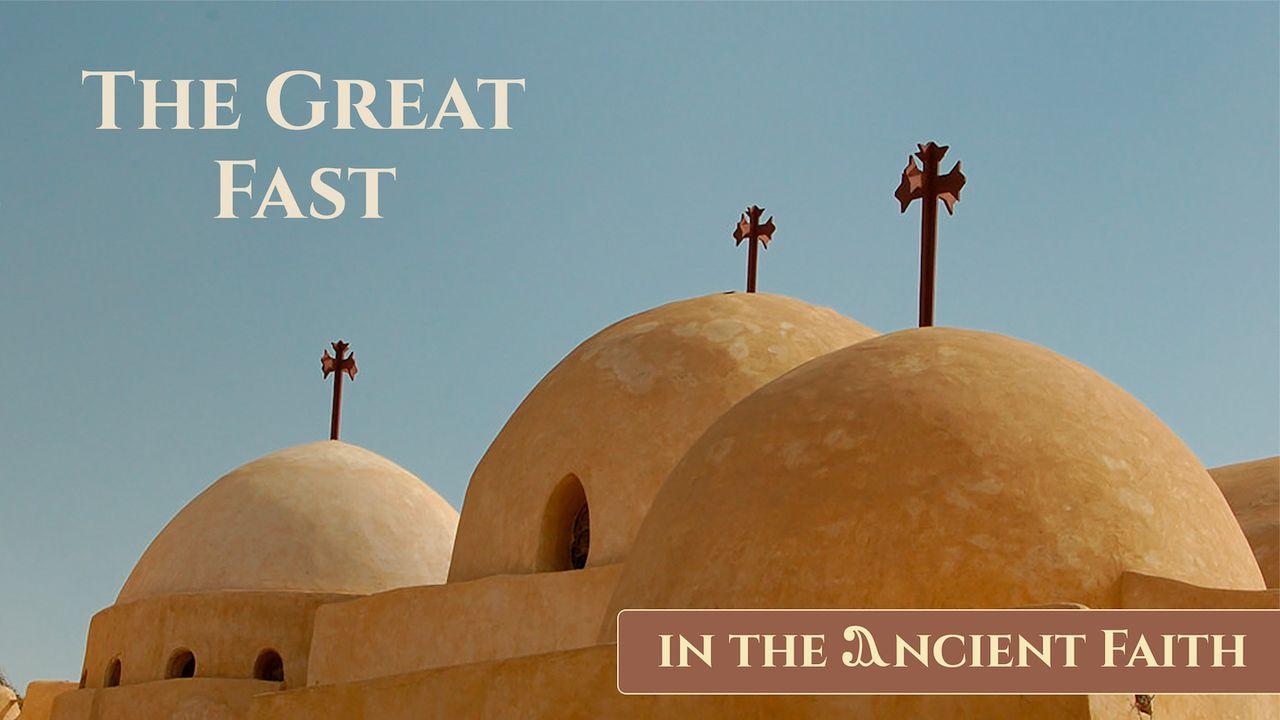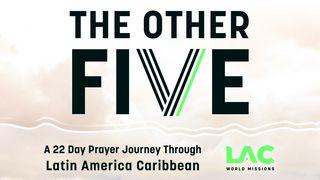Daily Journey Through the Great Fast With the Early ChurchSample

The world we live in teaches us that we are nothing, our lives are meaningless and if we want to be something, then do so by any means necessary - if we want to get ahead in life then we need to scheme to achieve. The Bible tells a different story; it tells us that our lives have a purpose and we mean everything to God. We can use our time here on Earth to submit to the world, which tells us to lie, steal and cheat to “make it” or we can use our time here to submit our wills to God, to have Him make us part of a bigger heavenly plan.
We have the free will to submit to the world, which in turn will keep us in bitter bondage, never wishing to free us from her evil grasp, or we can, by our free will, submit to God, Who in turn liberates us from that bitter bondage. God provides, to those that freely submit to Him, a protective authority, whereas, the world provides, grief, pain and troubles to those that choose her. When we submit to the world we find ourselves depressed and never having enough, but if we submit and allow God to free us, He will indeed free us from our worldly lusts - we need only to pray to Him asking Him to free us and to submit to Him.
“Do you see how many reasons he employs to lead them away from the error of the Jews? He shows first that it is the utmost foolishness, having become free instead of slaves, to desire slavery again instead of freedom. Second, he reveals them to be unmindful of and ungrateful to their benefactor, despising the one who frees them and preferring that which enslaves them. Third, he shows that this is absurd, since [as Paul says] “the law has no power over you, since another has purchased you once for all from it.” [St. John Chrysostom, 4th century Archbishop of Constantinople and a “doctor of the Church”]Growing up we aspired to be astronauts, President of the United States, doctors, teachers, firemen, and the list goes on and on. What became of those dreams? Why is it at a young age those things seemed to be attainable and within our grasp? We believed it was possible and so we spoke and acted like it. When God tells us, “you shall be perfect, just as your Father in heaven is perfect” [Matthew 5:48] do we believe that perfection is attainable? Yes, we should!
If we are told something is impossible, most of us would believe it, never having tried, simply because we are told it is impossible, yet why is it that if we are told that perfection is possible that we treat it as if it were an impossible feat, only for God or saints? We are told, and must believe, that to live in perfection like God is achievable – we must sacrifice and strive to attain it – yet if we are told perfection is impossible then we will never try, let alone get out of bed to try.
When we were younger, blowing out the candle, we would always wish for something that would make our lives “perfect” - God wishes for us to live in a perfect relationship with Him. He is waiting to give us “exceedingly abundantly above all that we ask or think” [Ephesians 3:20], but Christian spiritual perfection is attainable, if we choose and strive for it. Striving for spiritual perfection should not be done to “earn” God’s love – He gives that freely to all – but because He loves us, what should be our natural response to His love? For us to love Him back, to be the best possible Christians we can be - that He would increase and I would decrease (John 3:30).
“Many measuring the commandments of God by their own weakness, not by the strength of the saints, hold these commands for impossible, and say that it is virtue enough not to hate our enemies; but to love them is a command beyond human nature to obey. But it must be understood that Christ enjoins not impossibilities but perfection. Such was the temper of David towards Saul and Absalom; the Martyr Stephen also prayed for his enemies while they stoned him, and Paul wished himself anathema for the sake of his persecutors. For whoso keeps the commandments of God is thereby made the son of God; he then of whom he here speaks is not by nature His son, but by his own will.” [St. Jerome, 4th century theologian and historian]
About this Plan

A glimpse into the beauty of the Early Church’s perspective of the Holy Great Fast. Taste the depth and richness of this daily study by reading in God’s word during our journey through the Holy Great Fast. Dig up the treasures of the early church fathers and bring this ancient faith to your every day life.
More
We would like to thank Coptic Orthodox Church for providing this plan. For more information, please visit: https://www.suscopts.org/









